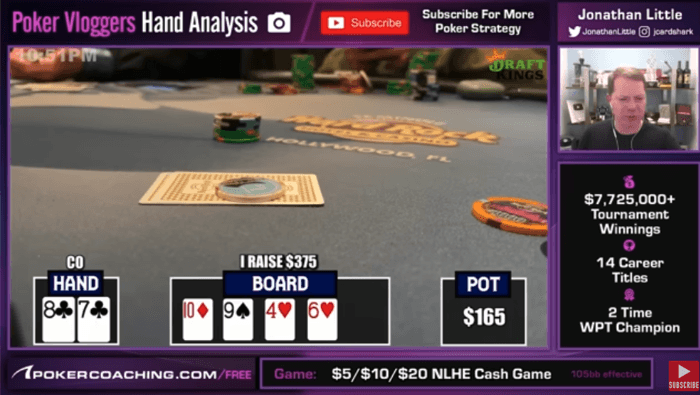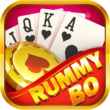Ethan “Rampage” Yau turned the nuts in a $5/$10/$20 cash game at Seminole Hard Rock in Hollywood, Florida, but the river left him with far from the best hand.
In this strategy column for PokerNews, I discuss which draws are good to bet on the flop and which ones you should use to check. Generally, draws that can still profitably call a check-raise are good ones to bet. Draws that have low showdown value but still have good equity are great ones to use in your betting range. I also discuss the difference between playing Game Theory Optimal (GTO) and exploitatively.
Generally, in most live cash games, players will not be playing anywhere close to GTO, so you should look for weaknesses they have in their poker game and exploit them. One of these common weaknesses is not adjusting their strategy according to the bet size. For this reason you should look to use large bet sizes when you have strong value hands against players that will not adjust their defending range according to the size of the bet.
The action kicked off with Rampage opened to $75 from the cutoff with 8♣7♣ and playing about $2,500 deep. The straddled defended ahead of a flop of 10♦9♠4♥ that gave Rampage an open-ended straight draw.
The straddle checked and Rampage checked back. I think you can usually bet this hand when playing deep stacked because you can continue if you get raised. However, weaker draws will want to check back here.
The 6♥ on the turn gave Rampage the nuts and his opponent led out for $100. Rampage opted to raise to $375. The opponent called.

What would you do on the turn if you were Rampage?
- Call
- Raise Small
- Raise Big
While you typically want to raise when your hand is very good and vulnerable, I don’t think Rampage’s hand is very vulnerable here. I think if you raise, your opponent will likely fold unless they are a bit of a calling station. All things considered, I think Rampage is right to raise with the nuts but should have raised smaller to get action from weaker hands.
The 8♦ turn put four to a straight on the board and the opponent checked. Rampage went big by betting $750. Rampage was surprised when his opponent then check-jammed for $1,655.
I like a big bet here and think Rampage could have gone even larger with an overbet. When his opponent check-raises, Rampage is in a tough spot.
Thinking back to the previous street, the opponent’s range looks like a lot of flush draws, sets, two pairs and queen-jack when they call Rampage’s turn raise. Most of these hands will not check-jam the river except for queen-jack.
This is a difficult spot, but I would make a reluctant call here.
Rampage did call and was disappointed as his opponent showed Q♦J♦ for the nut straight.
I don’t fault Rampage for calling in this scenario. However, he mentioned that he had not even realized another straight was possible, so he might have found a fold if he was paying closer attention.

